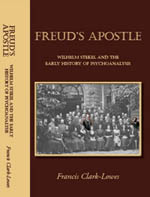Passionately concerned as I now am about world peace, I am surprised to discover, looking back on my early life at Shrewsbury, how much my generation and I grew up in the shadow of the war. And, it has to be said, how we were warmed by its exciting afterglow. The reality of war was very far from our minds. One of my earliest memories is of being taken by my mother to visit her college friend, Marie, somewhere west of Reading. We travelled there on a weird kind of train that didn’t have a ‘puffer’ at the front (it was a GWR railcar, I later discovered). Marie lived in a military camp and her husband was a nuclear physicist. I remember two incidents rather clearly; the first was being left at the bottom of a tower because I was too frightened to climb up it with my mother and Marie; the other was my mother giving her friend some mushrooms she had picked on a walk, and Marie throwing them away with a gesture of horror. Only much later did I learn that the name of the place was Aldermaston.
Every so often the school Officer Training Corps band would march along the road outside our flat playing rousing pieces such as Handel’s Scipio. We (my brother Jeremy was born in 1947) called them the ‘bangs and fumps’. Up the fire-escape from our flat there was a store room which no one bothered to lock and in which we found endless amusement trying on gas masks which were lying around. In the hall of our flat my father’s army greatcoat hung on a stand, a pistol lay in a drawer, and he kept (and still keeps) his important documents in a metal ammunition case. When you went anywhere by train there were always lots of national service soldiers milling around, with their kitbags on their backs. One day I asked my father if there were still any wars, and he told me there was always one somewhere; at that time it was in Korea. Some time later we watched a procession of soldiers, some of them on stretchers, back from this war. How heroic! Would we ever have a chance to fight, we wondered. One day, on a visit to Featherstone (see previous article), an uncle explained that the ugly POW camp we were walking past was not being completely demolished because a Third World War with Russia was expected.
As I thought about all this, it occurred to me forcibly that we were at that time living within ten years of the beginning of my father’s active war service. If I think back ten years from now, much has happened, but it all seems quite close. How much more so must those traumatic events have appeared to him, which is no doubt why he found it difficult to stop talking about them. I absorbed military language like my mother’s milk (probably better, if the truth be told!): ‘5th battalion, Royal Northumberland Fusliers’, ‘A Company’, ‘divisional headquarters’, ‘recce patrol’, ‘Dunkirk evacuation’ etc. In those days it was quite common for ex-army officers to keep their rank titles in civilian life. The father of my favourite girlfriend was Colonel West, the woodwind teacher at the school was (appropriately) Major Windrum, and my father’s eldest brother was Colonel Clark; such people enjoyed nothing more than a good old natter about the war: ‘I had a good war really!’ they liked to drawl. My father was self-conscious about this, wanting to join in, but sensing that it wasn’t quite right. We were deterred by no such inhibitions, as we flew around with our arms outstretched shooting down Nazi planes (we pronounced ‘Nazi’ with a short ‘a’ and an English ‘z’); or as we strutted around with our imaginary prostheses imitating our hero Douglas Bader.

